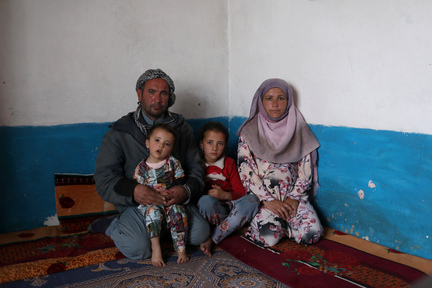On Afghanistan – Ezra Kleijn in NYT:
‘In August, President Biden withdrew American troops from Afghan soil. But even as we left Afghanistan’s land, we tightened a noose around its economy. The Afghan economy was built around our support. Roughly 45 percent of the G.D.P. and 75 percent of government spending was foreign aid. When we abruptly cut off that cash, we sent it into a tailspin.’
(…)
‘I was more sympathetic than many to the chaos that accompanied the American withdrawal. We lost too many of our own, and left behind too many who had risked their lives at our side, but the core of the catastrophe stemmed from failures previous administrations had covered up or refused to face. There is no good way to lose a war.
What’s happening now is different. Economic collapse was predictable, and it was predicted. As the economic historian Adam Tooze put it in August, “The Taliban may threaten Afghan freedom and rights, but it is the abrupt end to funding from the West that jeopardizes Afghanistan’s material survival.” That we did so little to stop it, and so much to worsen it, is unconscionable.
The Biden administration isn’t made of monsters. They don’t want this. They don’t want it for Afghanistan, and they don’t want it for their own place in history. “The most urgent priority animating diplomacy as well as American decision making on Afghanistan is to meaningfully address the humanitarian and economic crises,” Tom West, the U.S. special representative for Afghanistan, said on Tuesday.’
(…)
‘Faced with this mess, the Biden administration proposed a bizarre deal wherein the 9/11 families will get half the money and the other half will be put toward Afghanistan’s humanitarian crisis, though no one yet knows how. The way the Biden administration sees it, it fought to make sure Afghans get some of that money back, at potential political cost.
But in both the sanctions and the seizures, you can see an almost Kafka-esque madness in the American position. They are expending all this effort to ameliorate the consequences of a sanctions regime they are implementing. They are desperately brokering deals to preserve foreign reserves that they are freezing. When I ask why they continue to impose these policies at all, the administration says that the Taliban has American prisoners, that it is a brutal regime that murders opponents and represses women, that it has links to terrorists, and that our sanctions grant us much-needed leverage.
But what is that leverage, exactly? “To destabilize Taliban rule, the U.S. is weaponizing the aid-dependent Afghan state that it built,” wrote Spencer Ackerman, a national security reporter, in his excellent newsletter, Forever Wars. “This economic weapon works by harming the Afghan people directly, with the hope that the suffering of the people prompts the end of the Taliban regime.”
That this will work — that these sanctions will destabilize the Taliban or persuade them to make the changes we want — is a hypothesis. It is only the Afghans’ suffering that is fact. You do not have to absolve the Taliban of their sins to wonder if this policy makes sense.’
(…)
‘I found it hard, in my conversations with Biden officials, to get them to zoom out, to explain how our various policies fit into a sensible, humane whole. But this is how it looks to me, and to many analysts I spoke to: Over 20 years, the United States built an aid-dependent economy in Afghanistan. When we left, we withdrew the aid on which it depended. When the Taliban took over, we turned the sanctions and financial weapons we’d wielded against them against the government and country they now controlled. We comfort ourselves by saying we are the largest donor to the Afghanistan relief effort, but we are also a major reason the crisis is dire in the first place, and we continue to be.
In his testimony before the Senate Foreign Relations Committee, Miliband, the president of the International Rescue Committee, was unsparing. “This crisis will not be solved by more humanitarian aid,” he said, “Aid cannot make up for an economy deprived of oxygen. Economic collapse makes the humanitarian challenge like running up an escalator that is going down faster and faster. It becomes impossible. That is why the need today is not just for more aid; it is for different policy.”’
Read the article here.
Fair enough, all other countries who participated in the Afghan adventure bear responsibility for the mess, but of course America drove the war and the action. I know ISAF stood for I Saw Americans Fighting.
So sanctions are useless, and if you build an economy around foreign aid you create more corruption than necessary and you turn a nation state into a junkie.
The different policy will be once more foreign aid I'm afraid.
A modest proposal, maybe Afghanistan could become the 51st state of America?
